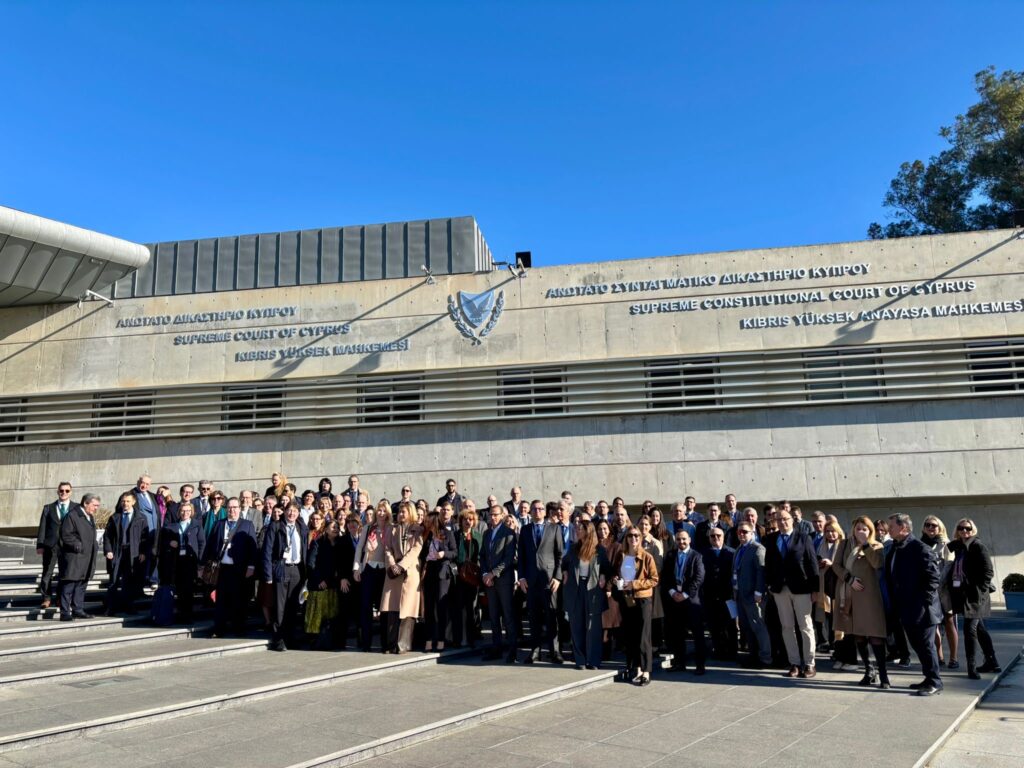Previous Article
News
CEP Special Interest Group Prisoners Abroad adopts various strategies
What to do about the social rehabilitation of nationals in foreign prisons? How to deal with foreigners in your own prison system? These and other fundamental questions brought the attendees to the Prisoners Abroad Conference in Utrecht, The Netherlands, on March 10, 2011. The day became a platform for the presentation of a business case that states the importance of effective measures to combat recidivism among this group of prisoners.
Special Interest Group
The conference was the result of the CEP Special Interest Group (SIG) that focuses on nationals in foreign prisons. Rolf Streng, head of the foreign office of the Dutch Probation Agency, and John Walters, member of the board of Prisoners Abroad (and former CEP Secretary General), co-authored the above mentioned business case. With the business case, the SIG has set out its strategy to promote better care for the special group of prisoners.
 More research
More research
The conference established several issues where they see room for improvement, one of them the need for further research. At the conference, researcher Femke Hofstee-van der Meulen indicated in her presentation the needs of Dutch nationals in foreign detention in their preparation for release and upon return in the Netherlands. The main message of her presentation was that people in foreign prisons have special needs, incomparable to a regular detainees. “I have sent questionnaires to all 2,600 Dutch nationals in foreign detention and received a reply from 584 prisoners in 54 countries (93% of all Dutch nationals are detained in these 54 countries) and I carried out in-depth interviews in prisons around the world. I asked them about the kind of care they received from consular staff from the Dutch diplomatic post, visiting volunteers of the Dutch Probation Service and volunteers of the religious organisation Epafras. And what kind of effect this care had on their situation in detention and on their preparations for release” says Femke Hofstee. “I have seen how complicated the issues they face are and how important it is to invest also in the particular group once they return to the Netherlands. For this reason it is vital that awareness is raised about their special needs during detention but also upon release in order to facilitate a successful return into society. “
Spread awareness
One of the three afternoon discussion groups focused on research questions because research on broad trends or effectiveness of services can help to spread the message. “It was great to join the sub-group discussion on new research ideas at the conference and I saw some new ideas and viewpoints emerge,” says Femke Hofstee.
Create just policies
Parallel to the SIG business case, the Penological Council of the Council of Europe (PCCP) is currently preparing a Recommendation on Foreign Prisoners, which will set a minimum standard for the treatment of foreign national prisoners. Dirk van Zyl Smit, advisor to the PCCP with regard to this recommendation and professor of Comparative and International Penal Law at the University of Nottingham, presented on the Recommendation on Foreign Prisoners, which in its effect and process is similar to the Recommendation on Probation.
“The SIG business case, the new research and the CoE Recommendation on Foreign Prisoners all point out that there is an urgent need to improve the conditions of foreign national prisoners,” says Rolf Streng at the end of the conference. “In a very near future we will investigate how we can join forces to bring forward the topic of foreign national prisoners within CEP.”

Related News
Keep up to date with the latest developments, stories, and updates on probation from across Europe and beyond. Find relevant news and insights shaping the field today.
Recap

Probation in Europe, Technology
CEP represented the Probation Sector at the European Judicial Training Conference on Digital Justice @2030
03/03/2026
On 26–27 February 2026, the European Commission organised the European Judicial Training Conference “Creating a Supportive Environment for Digital Justice @2030” in Nicosia, Cyprus, under the auspices of the Cypriot Presidency of the Council of the EU and in cooperation with the Cyprus Judicial Training School.
New

Uncategorized
Newsletter February 2026 out now
27/02/2026
CEP’s latest newsletter is out now! Articles on the Interactive European map of probation education and training institution contacts, Registration open for the Workshop on Caseload and Workload and 14th Conference on Electronic Monitoring and more. >> Read here
New

Probation in Europe
New Division episode: Daniel Wolter on the DBH Federal Association
23/02/2026
The 18th episode of Division_Y features Daniel Wolter, Director of the DBH Federal Association for Social Work, Criminal Law and Criminal Policy, based in Cologne, Germany.
New

Victims rights
European Day for Victims of Crime
23/02/2026
Yesterday, 22 February, marked the European Day for Victims of Crime.
At CEP, we recognise that crime causes harm to individuals and communities. Probation work focuses on accountability, rehabilitation and reducing reoffending, contributing to the prevention of further victimisation.

CEP Board
Interview with new CEP board member Jana Bewersdorff
19/02/2026
During the General Assembly in Austria, a new CEP Board got elected for the upcoming three years. In the coming weeks we will publish interviews with all newly-elected board members where they will share information on their professional background, how they would like to contribute, what challenges lie ahead and many more.
Enjoy reading!
Recap

Research
Recap: Expert group on Research
18/02/2026
The Expert Group on Research met on 17 February at the CEP office in Utrecht, The Netherlands, for its annual face‑to‑face meeting.
Subscribe to our bi-monthly email newsletter!
"*" indicates required fields
- Keep up to date with important probation developments and insights.

